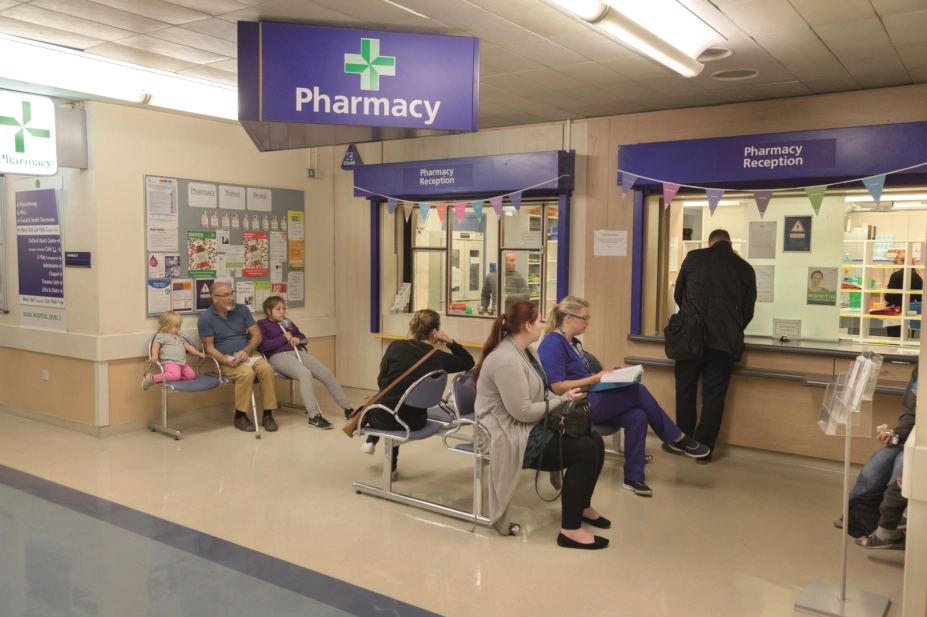
Imagedoc / Alamy Stock Photo
Nearly three in four patients who were delayed on discharge from hospital said it was because they had to wait for medicines, a Care Quality Commission (CQC) survey has found.
The CQC’s 2018 Adult Inpatient Survey also revealed that 15% of the 76,668 respondents who were given medication to take home following a hospital stay said “they had not been given clear written or printed information about it”.
The survey, carried out between August 2018 and January 2019, questioned 1,250 patients from each hospital trust surveyed, who had received care in hospital during July 2018.
It found that 73% of patients “whose discharge had been delayed said that the main reason was that they had had to wait for medicines” — a 1% increase on the 2017 survey.
“The remaining quarter of respondents indicated they had to wait for an ambulance (12%) or for a doctor assessment (15%),” the report added.
Overall, 40% of patients said their discharge had been delayed — the same as 2017 — with the delay most commonly (35%) lasting between two and four hours.
However, 26% of respondents said they had to wait for more than four hours to be discharged, compared with 24% in 2017.
Commenting on the report, Aamer Safdar, principal pharmacist lead for education and development at Guy’s and St Thomas’ NHS Foundation Trust, said patients having to wait for discharge medicines “has been an issue for many years and hospital pharmacies have worked hard to reduce the patient waiting time with initiatives such as ward-based dispensing for high turnover wards”.
“Many hospitals have dedicated ward teams consisting of pharmacists, pharmacy technicians and pharmacy assistants to ensure that patients’ medicines are in the right place at the right time for when they are needed,” he told The Pharmaceutical Journal.
“The process of writing a discharge prescription is now increasingly being done by prescribing pharmacists and better use of interoperable digital systems to further minimise delays.”
The report also noted that the number of patients who answered ‘Yes, completely’ when asked whether they were given clear written or printed information about their medicines at the point of discharge reached its lowest level since 2010 at 66%.
Some 15% of respondents said they had not been given clear information about the medicines they were given. This is an increase on the 2017 survey, when 13% of patients said the same.
A further 44% of patients also reported not being told about “medication side effect to watch out for when you went home”.
Ted Baker, chief inspector of hospitals at the CQC, said he was “disappointed” to see that “in some cases, people are reporting poorer experiences, particularly around the quality of information when they were discharged”.
You may also be interested in
